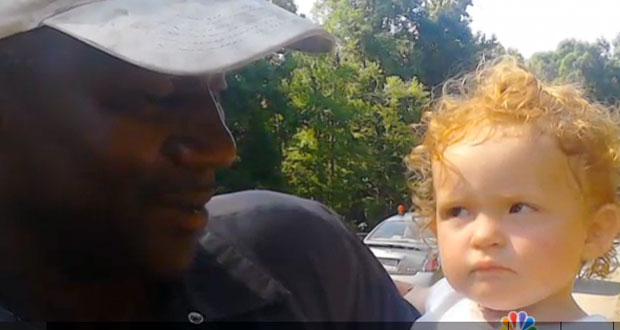Ex-prisoner saves baby on highway… This is what restoration looks like | Eric Metaxas

On a recent Friday morning, Bryant Collins, an automobile repairman in Georgia, was driving along the highway when he thought he saw something alongside the road.
Actually, what he thought he saw was a baby.
So, Collins pulled over and, to his surprise, found that he was right: It was a fifteen-month-old girl.
What followed is a story about what restoration looks like and why we often miss it.
Collins picked up the child, put her in his car, and called 9-1-1. For the next two hours, he comforted the child while the authorities tried to figure out who she was and how she’d come so close to the highway.
During that time, the child became upset. So, Collins resorted to the method that works for him when he gets upset: He played Gospel music on his cellphone. And it worked.
As if “baby found on the side of the road by passing motorist” wasn’t enough of a story, Collins’ own story garnered headlines: Collins, you see, is an ex-prisoner. He served ten years in federal prison for manufacturing cocaine.
He told an Atlanta TV station that, while in prison, “I made a very conscientious effort to change, and I did,” and that he has been sober and law-abiding since his release five years ago.
The story about the ex-offender turned Good Samaritan has captured the imagination of people not only in Georgia but across the country. The Atlanta television station that broke the story has received, in its words, “email after email” and its Facebook page has received more than 600,000 “likes.”
More tangibly, Collins has received job offers and other offers of financial support. So much so that he is overwhelmed by it all.
But there’s more on display here than a “feel good” story about an African-American ex-offender saving a strawberry blond baby by the side of the road. When people use the words “good Samaritan” to characterize Collins’ actions, they’re more right than they know.
Biblical references such as “good Samaritan,” when properly used, are more than pithy phrases. They bring along as it were the whole story from which they were drawn. In this case, Jesus’ reply to the scribe’s self-justifying question “Who is my neighbor?”
The answer: Not who you’d expect.
It’s unlikely that Collins was the only motorist who drove by the baby that morning. But he was the only one who we know for certain saw her. And seeing her, he took the time to stop and make sure that his perception was correct, and then he helped.
Collins says that he hopes that the lesson people take from his story is that “no matter how bad your situation has been—because most of these people that know me know that I’ve had some bad situations—that if you just keep trying, keep trying and make a serious effort to want to be changed, with God’s help, you can be changed.”
There’s a phrase we often use: “Isn’t that just like God?” Well, isn’t it just like God to use two of the least powerful members of our society—a baby and an ex-offender—to show us that change is not only possible, it’s going on all around us? You just have to be willing to see.
— by Eric Metaxas
Metaxas is currently the voice of Breakpoint, a radio commentary (www.breakpoint.org) that is broadcast on 400 stations with an audience of eight million.
Copyright© 2014 Prison Fellowship Ministries. Reprinted with permission. BreakPoint is a ministry of Prison Fellowship Ministries





